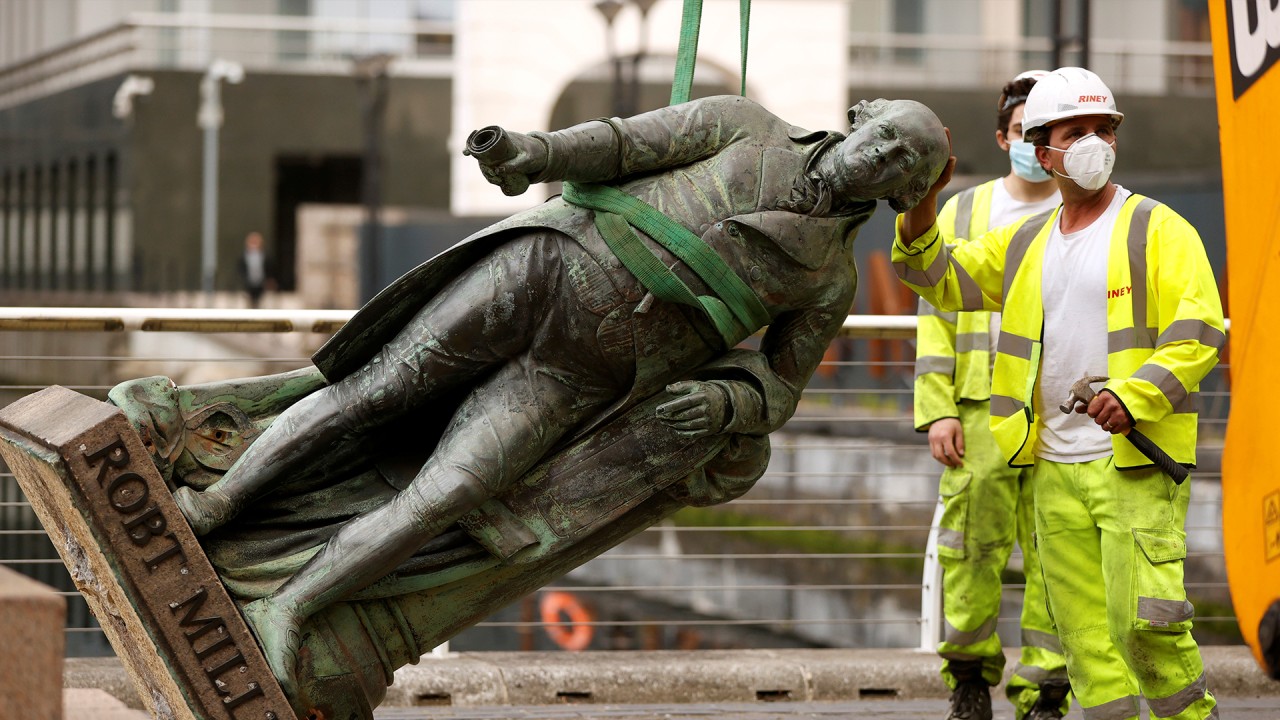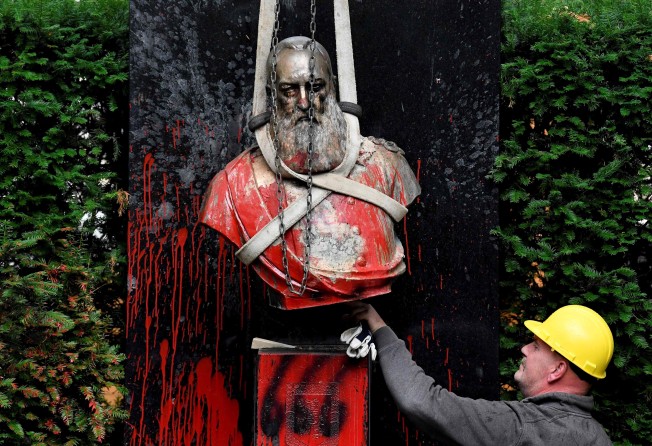
Colonial-era statues are toppled and damaged in global Black Lives Matter protests

A bust of former Belgian King Leopold II was taken off public display in the city of Ghent on Tuesday as Belgium marked the 60th anniversary of the end of its colonial rule in Congo.
The removal of the monarch’s likeness took place only hours after Belgium’s King Philippe, in an unprecedented move, expressed his “deepest regrets” for the violence the one-time colonial power inflicted on Congo and its people during the late 19th century.
Leopold, who ruled Belgium from 1865 to 1909, plundered Congo as if it were his personal fiefdom, forcing many of its people into slavery to extract resources for his own profit.
The early years after he laid claim to the African country are especially infamous for killings, forced labour and other forms of brutality that some experts estimate left as many as 10 million native people dead.

Colonial-era statues are toppled and damaged in global Black Lives Matter protests
Belgium has long struggled to come to terms with its colonial past, instead focusing on the so-called positive aspects of the colonisation. But the international protests against racism that followed the May 25 death of George Floyd in the United States have given a new momentum to activists fighting to have monuments to Leopold removed.
The Leopold statue in Ghent had been vandalised several times in the past and again after Floyd, a handcuffed black man, died after a white police officer knelt on his neck.
Following a short ceremony punctuated by readings, the monarch’s bust was attached to a crane with a strap and taken away from the small park where it stood amid applause.
After his claimed ownership of Congo ended in 1908, Leopold handed it over to the Belgian state, which continued to rule over the colony 75 times Belgium’s size until the African nation became independent in 1960.
In a letter to Congolese President Felix Tshisekedi, King Philippe stopped short of issuing a formal apology but conveyed his “deepest regrets” for the “acts of violence and cruelty” and the “suffering and humiliation” inflicted on Belgian Congo.
Philippe stressed the “common achievements” reached by Belgium and its former colony, but also the painful episodes of their unequal relationship.